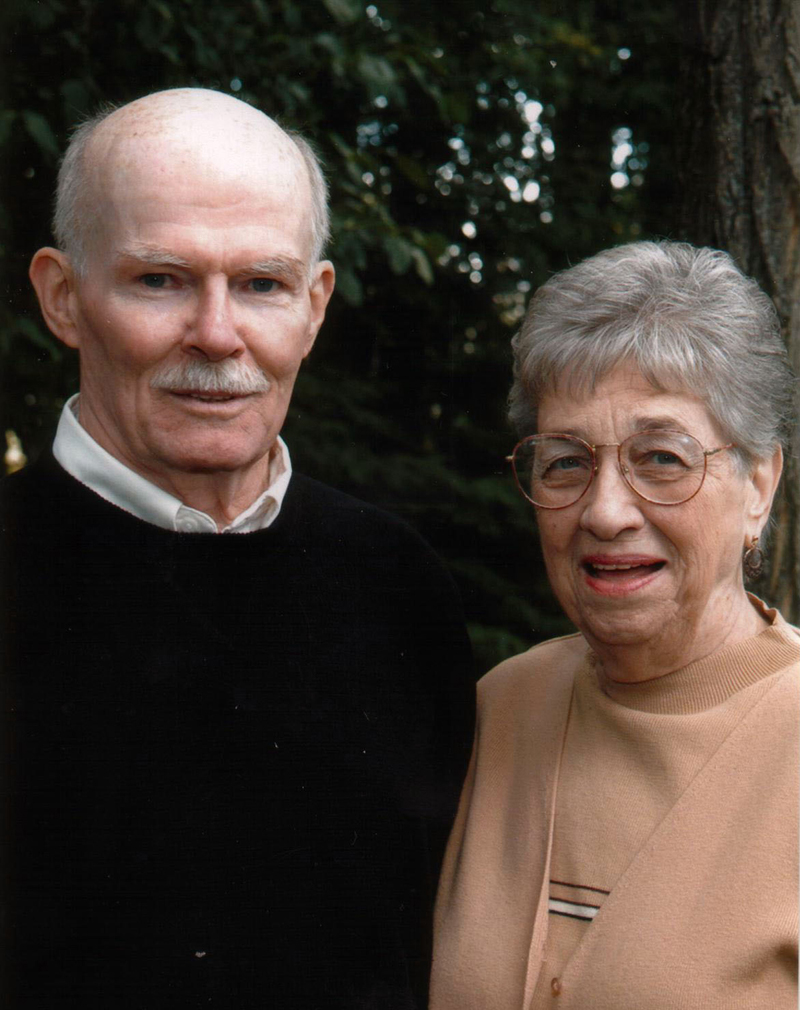By Frank Wessling
The Catholic Messenger
I hope everyone read the editorial page item last week by Bishop Martin Amos on planning for end-of-life health care or crisis situations. Get the forms, think seriously about what they ask, and keep the copies handy. You may get no warning when they’re needed, as I didn’t on Jan. 16.

Frank Wessling poses for a picture with his now-late wife, Mary Ann.
As the emergency team began fussing with my wife’s deathly quiet body on our apartment floor, one of the men asked if I had an advance directive about life-sustaining treatment for her. I did, and got it from the little pouch for emergency information we kept next to the refrigerator. He and his partner looked it over, and they stopped with the electrodes and the tubes and the cutting of her clothing.
Was she dead? I can’t say because I don’t know that some firm line had been crossed between life and death. But I had seen her suddenly put her hands to her head, moan slightly, and slump over as we sat watching a television show on Martin Luther King Day about the civil rights struggles of the 1960s in the South. I had seen her eyes lose focus. I had seen the blood drain from her face. I knew this was her fourth stroke (probable stroke) in six years, and I knew that her 86th birthday was coming on Feb. 1.
And I knew that she had been under who knows what kinds of stress as her Alzheimer’s disease seemed to be speeding up in its six-year rampage through her brain. That night she had not, as she had every evening for over a year, pestered me beginning right after supper to go to bed. Did she feel something coming? I don’t know; didn’t know. But I had no doubt that she was gone, whether it had already happened, or we were allowing it to happen right there and then, or she was tubed and wired up and transported to a hospital to let the technological imperative rule for a few minutes before it happened by some official edict.
Finally, I knew that it had been several minutes between the time of her collapse and the first EMT came in the door and relieved me in doing CPR on Mary Ann. Ten minutes, 12, 15? I don’t know, but it was enough to let me absorb the feel of a lifeless body under my hands while I pushed to the counting cadence of the 911 operator: 1 2 3 4 pause;1 2 3 4 pause; 1 2 3 4 …. Cardiac arrest, they said. It was enough. She had finished her race, to use St. Paul’s metaphor.
I have no regret about deciding that she was dead. I do regret, painfully, that she didn’t die in my arms, with my voice in her ear, rather than sprawled on a floor where I had pulled and tumbled and flopped her limp body at the urging and direction of that calm voice on the phone only doing its job. It didn’t know me or what I knew.
If this kind of thing ever happens to you, put the phone down, gently, and hold your spouse, your child, your mother or father. Let them die in your embrace. You won’t regret it.
(Frank Wessling previously served as editor of The Catholic Messenger.)











